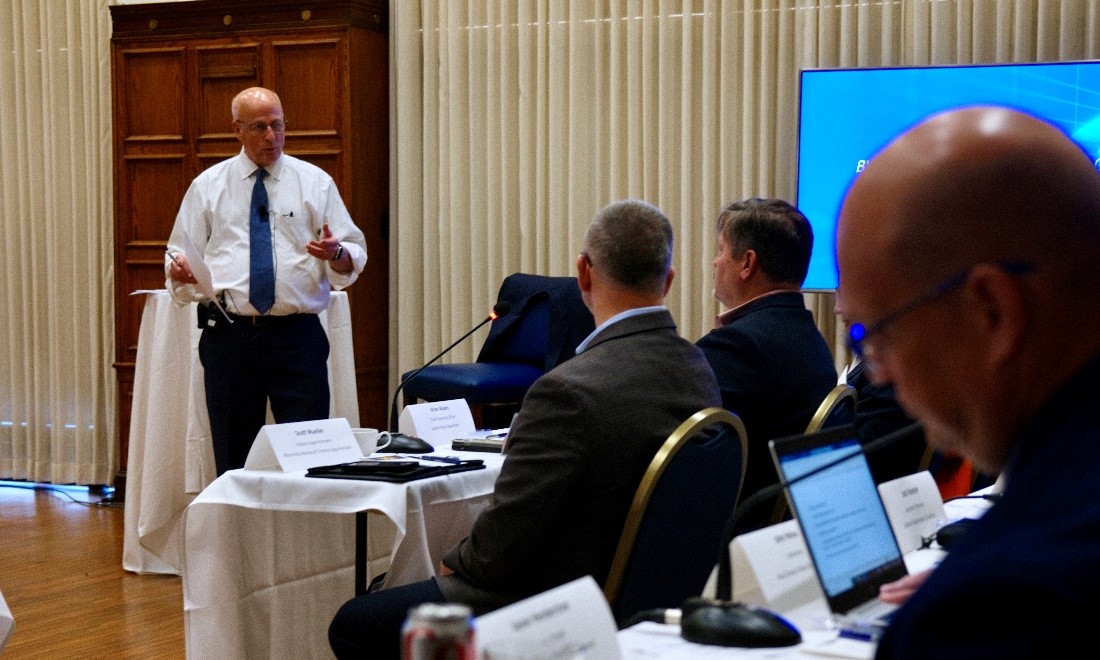|
September 30, 2023 Defining Moments for Chiefs: Managing Officer-Involved Critical Incidents
PERF members, Every police chief and sheriff dreads the call — an officer or deputy has been involved in an incident that resulted in a person’s death or serious injury. Although officer-involved critical incidents are relatively infrequent, they can have serious, long-term impacts on an agency and its relationship with the community. PERF is working on a project to identify and disseminate best practices for law enforcement executives on preparing for and responding to officer-involved critical incidents. We began by surveying agencies across the country and conducting interviews; this week we brought together roughly 40 experts on various aspects of officer-involved critical incidents to discuss this issue.
As we’ve learned, chiefs face critical decision points before, during, and after these incidents. At each point, the choices they make may damage the agency’s credibility. Below are some questions every chief or sheriff should be asking about their agency: Do you communicate with community stakeholders before an incident ever takes place? Meaningful conversations between your members (including your patrol officers) and everyone from local political leaders to community advocacy groups are incredibly important, especially since you may later rely on those same people to relay accurate information following a critical incident. Agencies need to cultivate trust before needing to rely on it. How does your agency disseminate information to the public beforean incident takes place? Where can the public learn general information about officer-involved critical incidents in your jurisdiction? Does your website advise the public of your policies on issues like whether your agency releases body-worn camera footage or officers’ names? Does it explain which agency investigates your incidents? Proactively telling the public what it can expect both sets and manages expectations. If a separate agency investigates your critical incidents, have you met with members of that agency to develop protocols and procedures? The middle of the night, immediately following a critical incident, is not the time to try to figure out which agency is responsible for which duties. What about the prosecutor? Have you and the prosecuting agency worked out who will communicate with the public, what information will be released, and in what manner? In most jurisdictions, the prosecutor has no authority over the police chief or the sheriff, but coordination and communication are incredibly important. Do your officers know what to expect if they are involved in a critical incident? Do officers know what the actual investigation will entail — both the criminal and administrative reviews? Once an incident takes place, what is the best way to communicate with the public? If you hold a press conference, questions may be raised about whether the decedent had a criminal history, whether you think the officer’s actions were justified, and whether you find the incident problematic. Have you thought about what your general policy will be on answering these questions? The initial information that chiefs get is usually incomplete and may even be inaccurate, so it’s important to emphasize that this is preliminary information that’s subject to change. If there is video of the incident, what is the best way to release it? How long after an incident should video be released, and in what form? Should commentary be included? Agencies are using creative means to release video and we heard about many of them. Will the involved officers be permitted to watch body-worn camera footage before being interviewed? PERF recently held a meeting about this and other BWC issues. Although police tend to feel strongly on both sides, many agencies are taking a second look at their policies on viewing footage of a critical incident before providing a statement; more and more agencies first conduct a perceptual interview (where officers relate what they remember seeing, hearing, feeling, etc.), after which officers can view the video if they wish and can add any relevant information to their earlier statement. PERF will issue a report on our recent BWC meeting in the coming months. How will the administrative and criminal investigations be handled? Our survey informed us that most agencies hold off on the administrative investigation until the criminal determination has been made. We had a robust discussion at the meeting about whether these investigations could run concurrently or should always be consecutive. This is an important issue that has not received enough attention. Will your agency release the involved officers’ names? If so, when? What procedures do you have in place surrounding this practice? What other information will you share about the involved officers, regardless of whether their names are released? This is a sensitive issue for the community and can be a source of great anxiety for officers, so the more information everyone knows in advance, the better for all. How will the employment status of involved officers be handled pending the criminal determination? Will they remain on administrative leave? Is the opportunity for modified or even full duty available, depending on the facts of the incident and the officers’ mental state? We heard repeatedly about the time it takes for prosecutors to issue decisions in these cases, so this issue can be significant. What mental-health and wellness resources are available to officers involved in critical incidents? These events can take a tremendous toll on an officer. Departments must make sure officers receive sufficient support during these situations. No two cases will ever be the same and the laws and policies of every state and jurisdiction will vary, but since the inception of this project, we have seen themes emerge where law enforcement executives are seeking guidance. We’ll issue a report in coming months that we hope will answer many of their questions. And police executives can take some steps immediately, such as meeting with partners who will be involved in investigating a critical incident and improving the information available to their officers and the public about how these situations will be handled. Best, Chuck |

